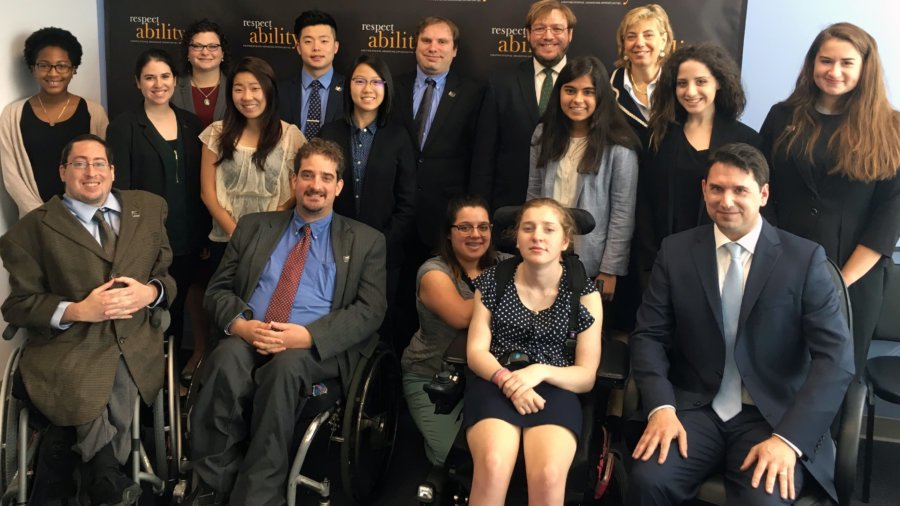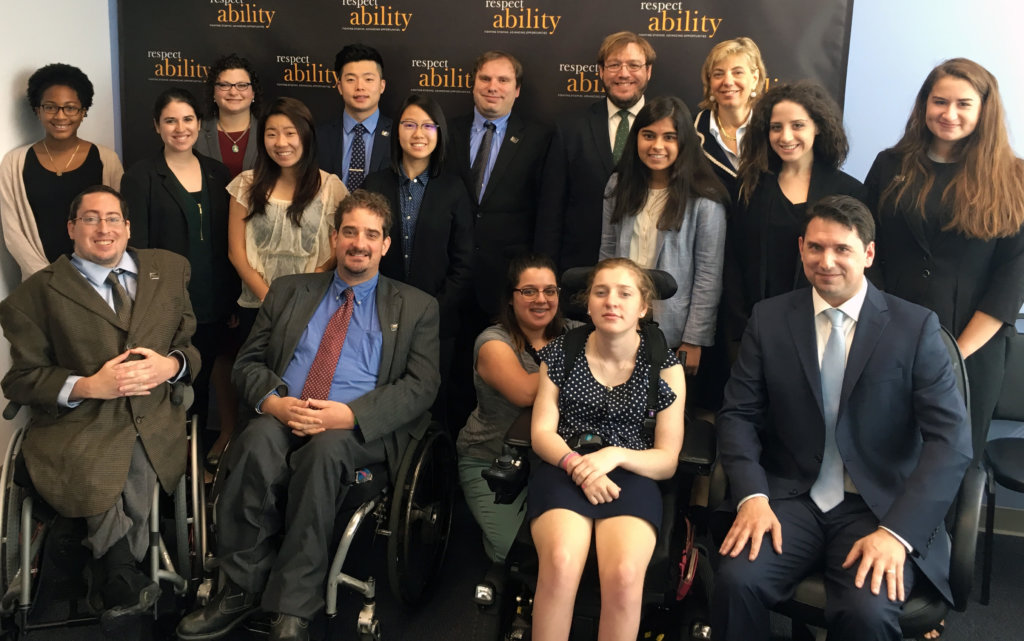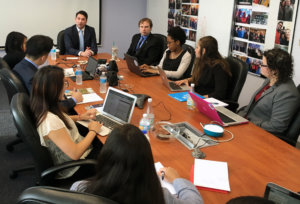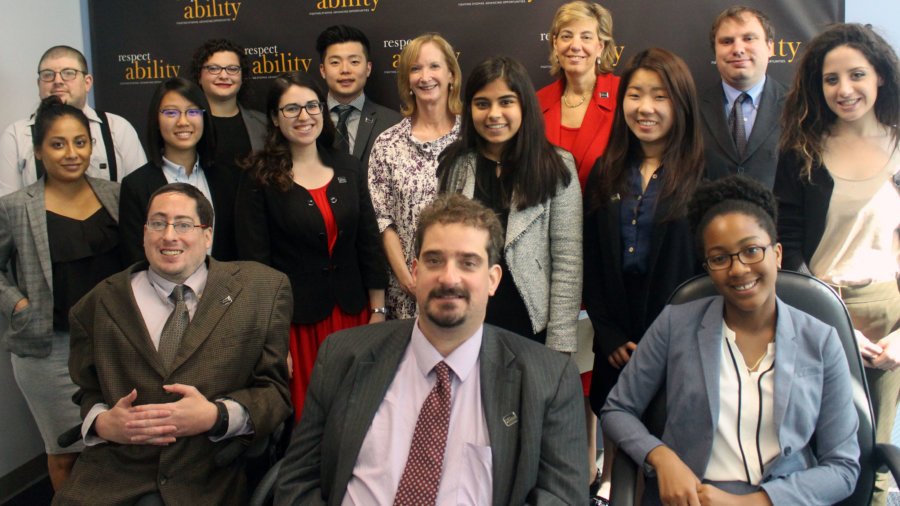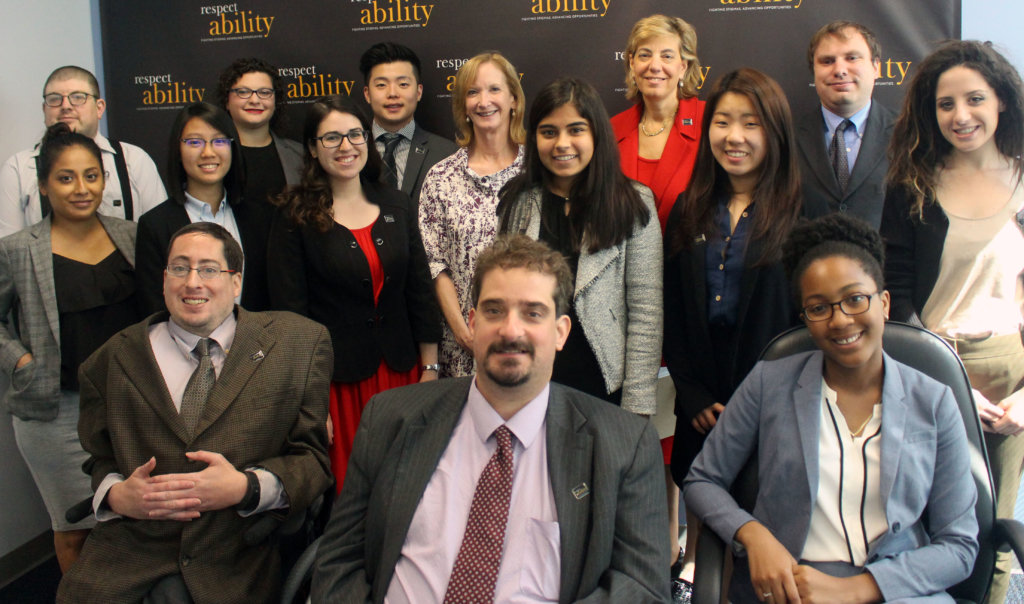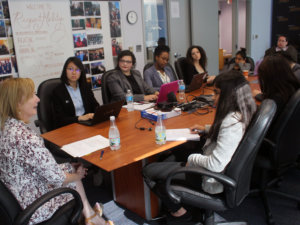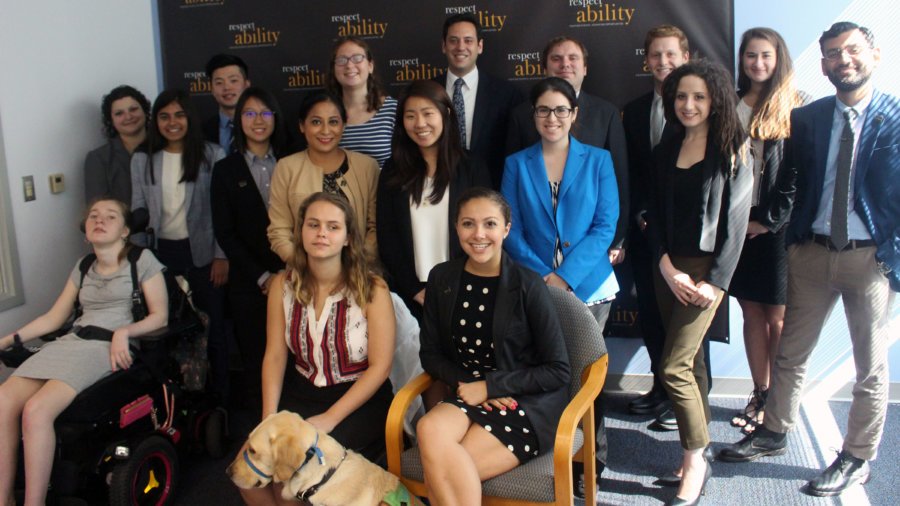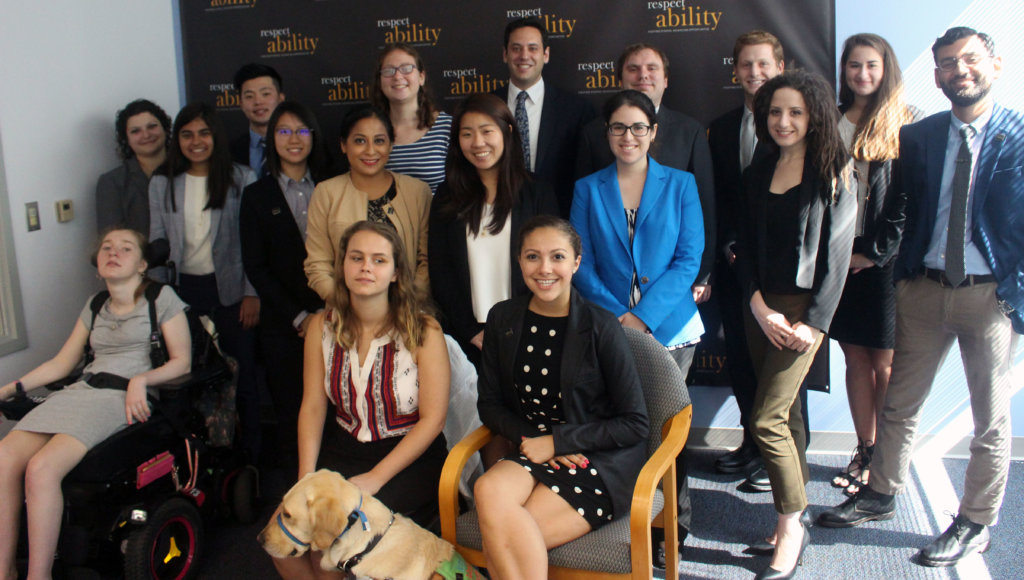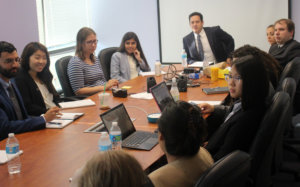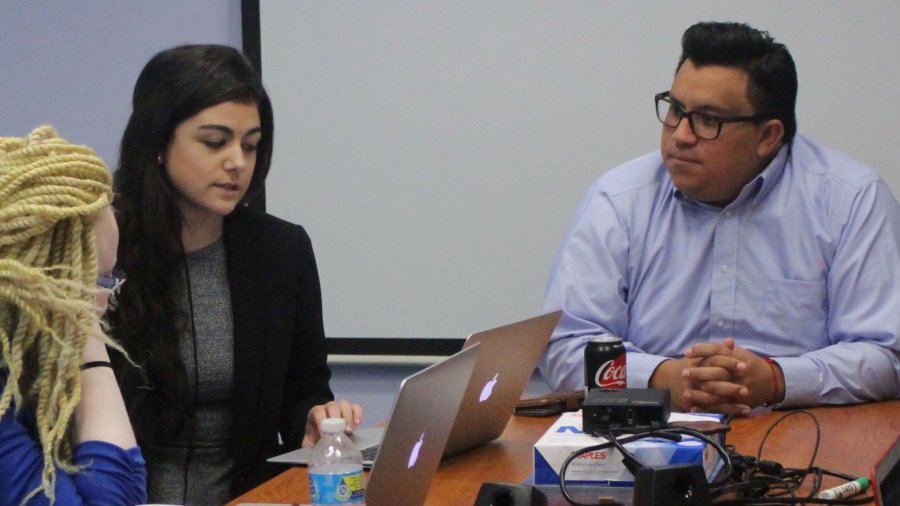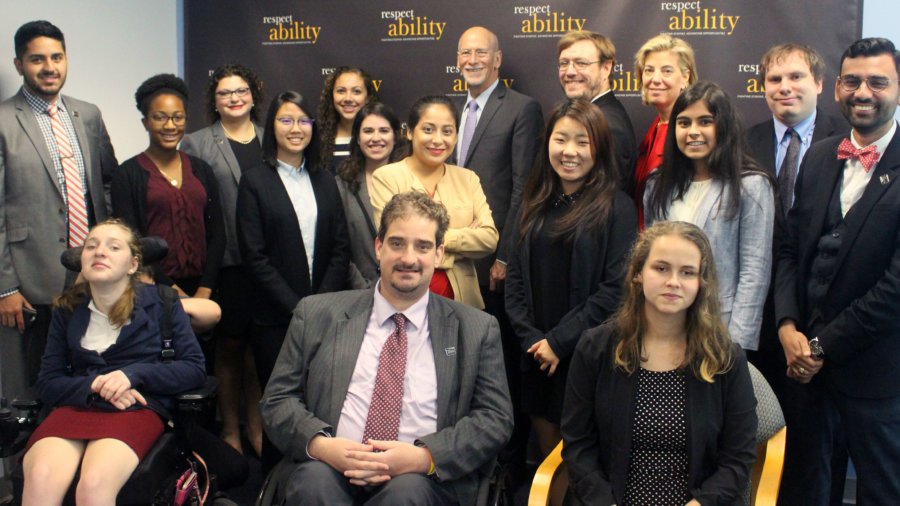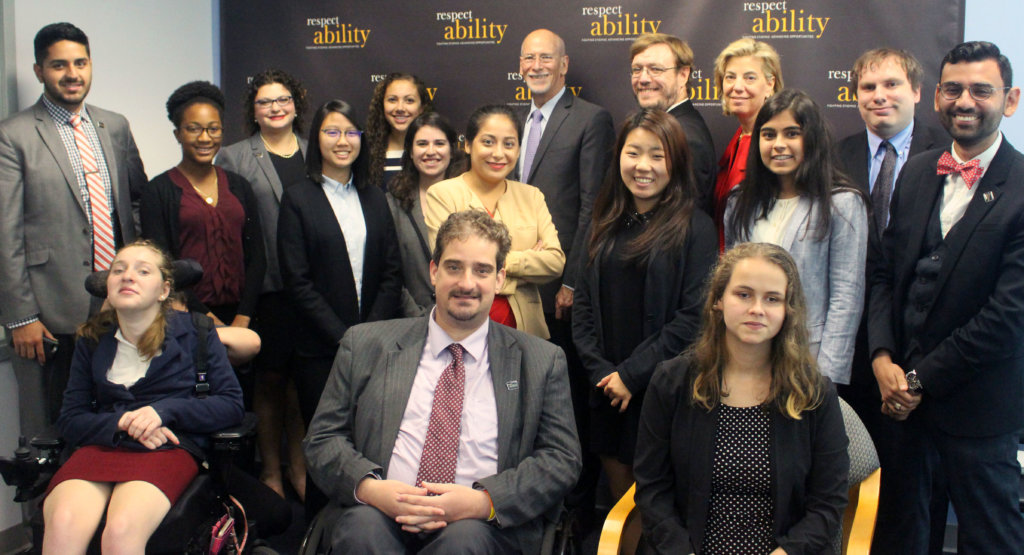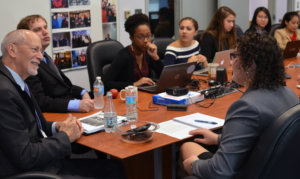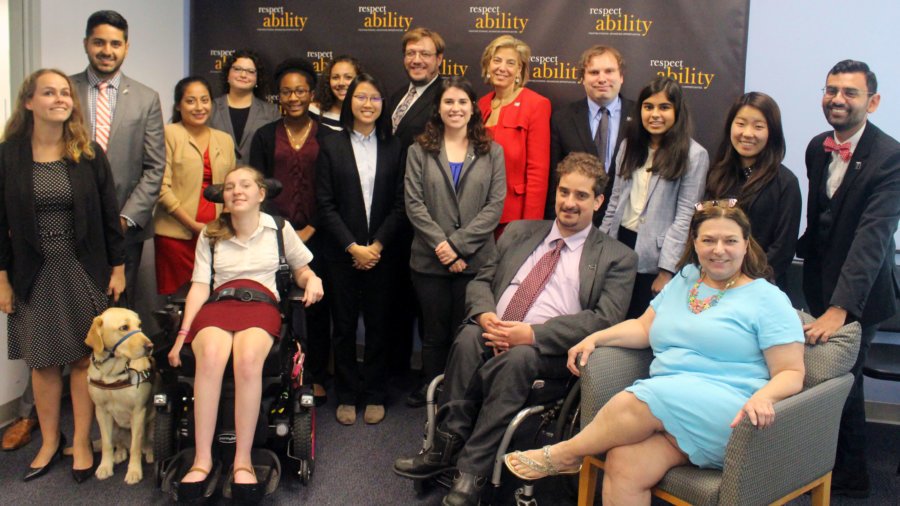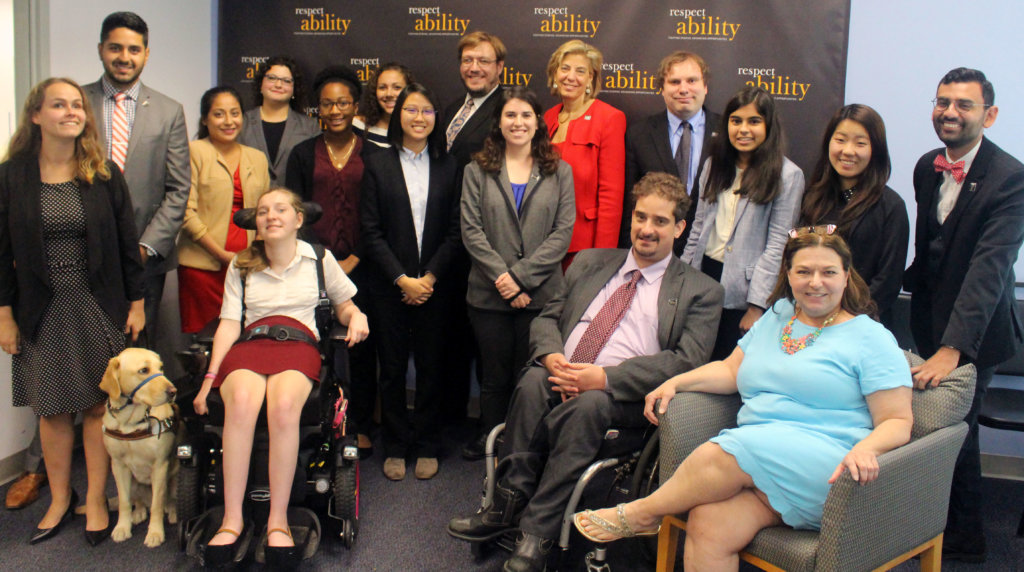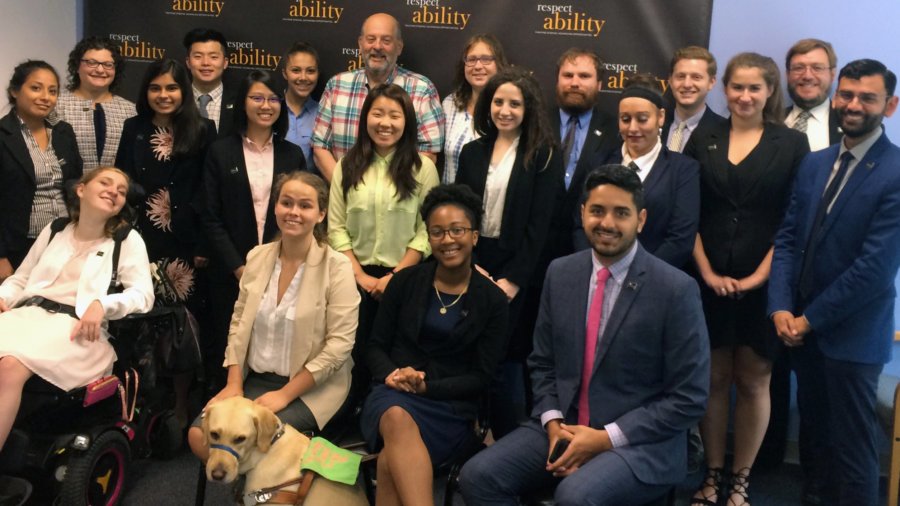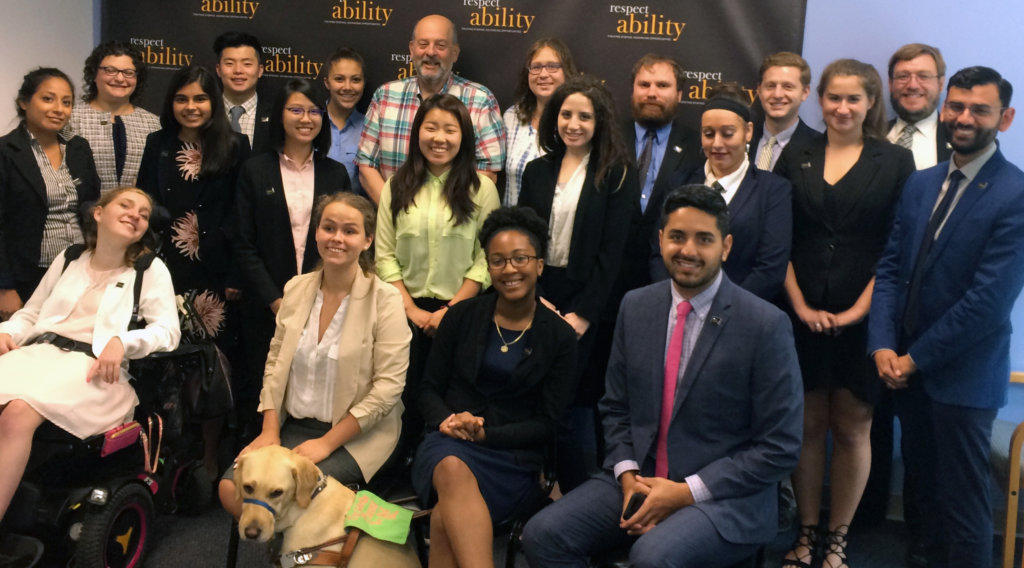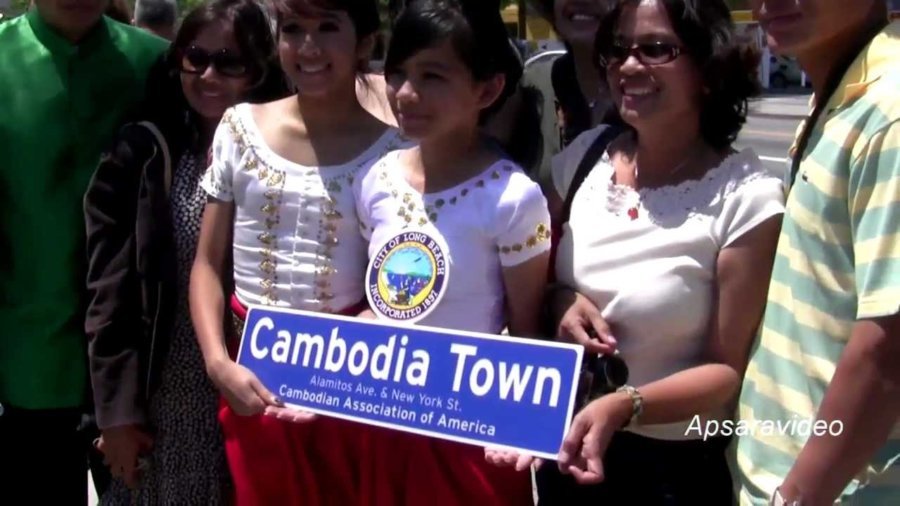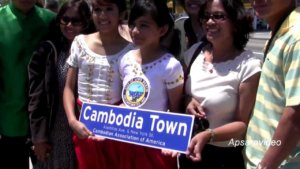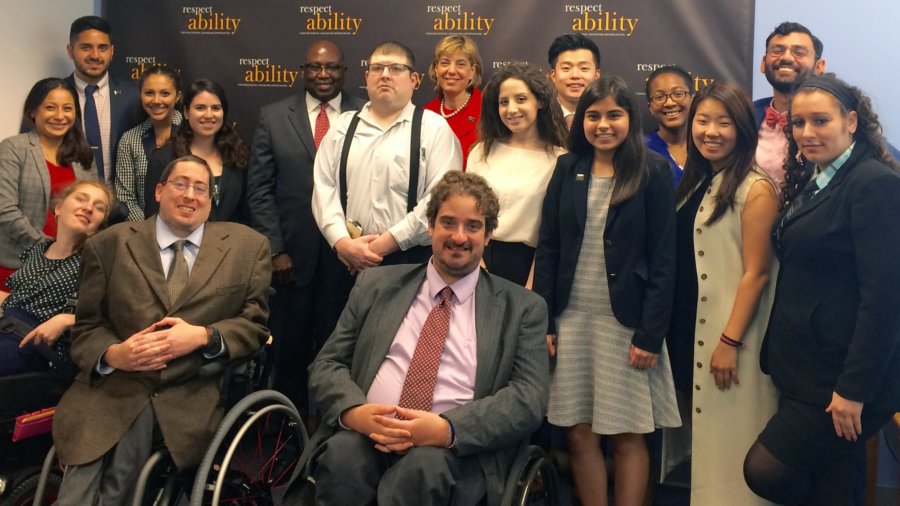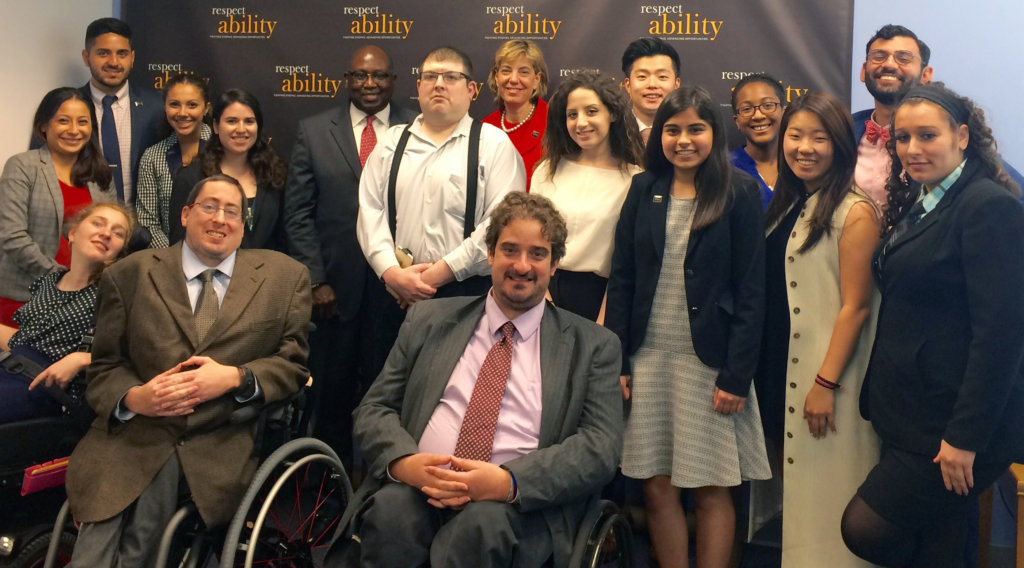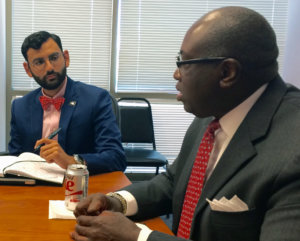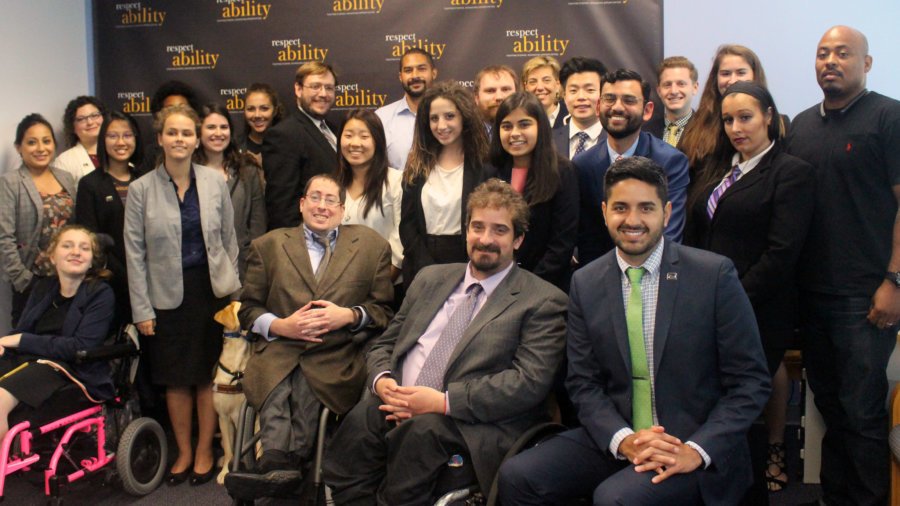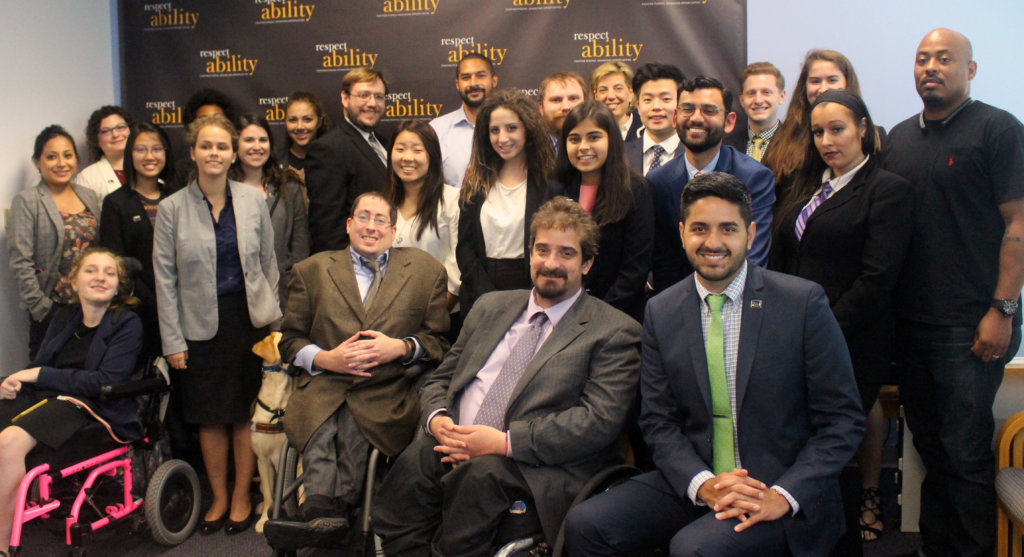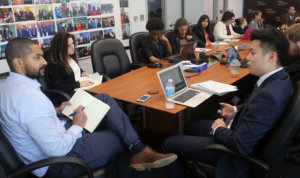Lessons from multihyphenate Geoffrey Melada
Rockville, Md., Sept. 18 – Geoffrey Melada is an outgoing and demonstrative man, a personality that has no doubt served him well as he moved from courtrooms to newsrooms during a diverse career as a journalist, trial lawyer and now communications director for Hillel International.
As he entered the room, you could see his face light up and his excitement to be speaking in front of a group of interested young advocates, mixing advice and anecdotes in his hour-long talk.
Like many of the speakers RespectAbility featured this summer, Melada has not had a ‘traditional’ career journey. However, his winding career path taught him many lessons along the way, and he argued that the fellows shouldn’t accept the conventional wisdom that there is only one path to a profession.


